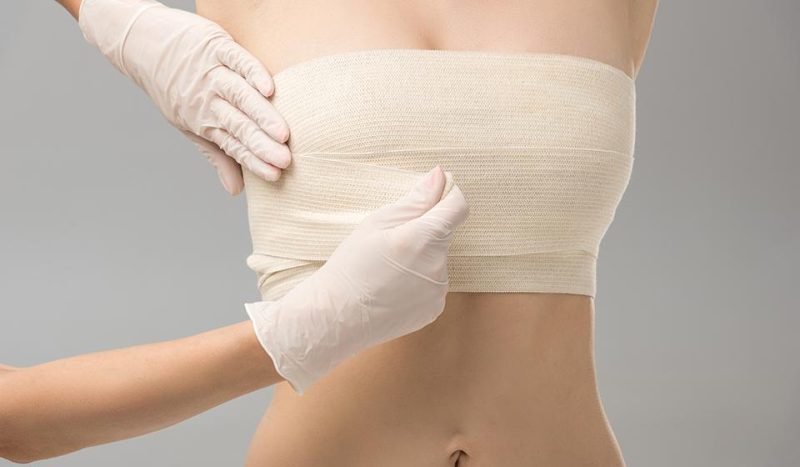
Breast reduction surgery, also known as breast reduction mammaplasty, is a surgical procedure used to reduce the size of the breasts. It is usually performed for medical reasons, such as relieving neck, back, and shoulder pain caused by large breasts. It may also be done for cosmetic reasons to achieve a more proportional figure. In this procedure, the excess fat, glandular tissue, and skin are removed from the breasts, and the remaining tissue is reshaped to create smaller, more lifted breasts.
While the procedure is a great way to enhance your overall silhouette, it comes with after-effects that you should be aware of. Common after-effects of breast reduction surgery include swelling, bruising, and pain. You may also experience numbness in the nipples and surrounding area. This is your body’s natural response to surgical trauma. Taking steps to reduce bruising can result in a more comfortable recovery and help you feel at ease.
Here are some steps that can help minimize the problems associated with breast reduction surgery:
Wear A Compression Bra is Essential
A compression bra is a type of supportive undergarment that is designed to keep constant pressure on your incisions while offering support, comfort, and stabilization to your new breasts. The pressure from your compression bra across the treatment area reduces the bruising by preventing blood from seeping out from your damaged blood vessels. Swelling is also reduced because pressure help to promote blood circulation and flush out harmful toxins from the incision site. This bra will wear during the initial part of their recovery (two weeks after surgery). Also, It can be worn both day and night.
Get Plenty Of Rest
It is important to get plenty of rest after breast reduction surgery. Your body needs time to heal and recover, and rest is essential for this process. Make sure to get at least 8 hours of sleep each night and take short naps throughout the day if needed.
For the first few weeks after surgery, the best sleeping position is on your back with your head and shoulders slightly elevated. This angle reduces swelling as well as puts less strain on your incision sites.
Do Light Activity
When it comes to recovery, light activity can also be beneficial. A light exercise includes walking and stretching helps to promote blood circulation and prevent blood clots while minimizing post-operative swelling and limiting bruising. Start with short, slow walks and gradually increase the distance and speed as you feel more comfortable. Also, wear comfortable, supportive footwear and take breaks as needed during walking. Avoid doing any intense activity such as high-intensity cardio, lifting heavy weights, or anything that involves lifting your hands above the head.
Take A Healthy and Balanced Diet
A healthy, balanced diet is a good way to give your body the nutrients it needs to minimize swelling and bruising while helping you recover faster.
Fruits and vegetables are packed with vitamins, minerals, and antioxidants can help keep your body healthy and strong after surgery. Lean proteins, such as fish, chicken, and beans, are a great source of energy and help to keep your muscles strong. Foods like pumpkin seeds, spinach, and pulses have zinc that can help to speed up the recovery process. Also, try to eat home-cooked meals as much as possible and limit your salt intake. If you eat a lot of salty foods, you’ll experience fluid retention that worsens your bruises and swelling.
Take Your Medications As Prescribed By Your Surgeon
Your surgeon will typically provide you with a list of medications to take. Common medications prescribed after a breast reduction procedure include antibiotics, arnica, and arginaid to prevent infection, reduce discomfort, and minimize swelling and bruising. Your surgeon may also recommend taking supplements that have vitamins C, E, and Zinc to reduce the risk of complications and speed up the recovery process.
The Bottom Line
Although bruising and swelling after breast surgery are normal, there are several steps you can take to reduce them and make the recovery process easier. These include taking medications, wearing a supportive bra, medication as prescribed by your doctor, avoiding salty foods, and strenuous activities. By following these steps, you not only prevent your body from complications but also get the best cosmetic results as quickly as possible.









